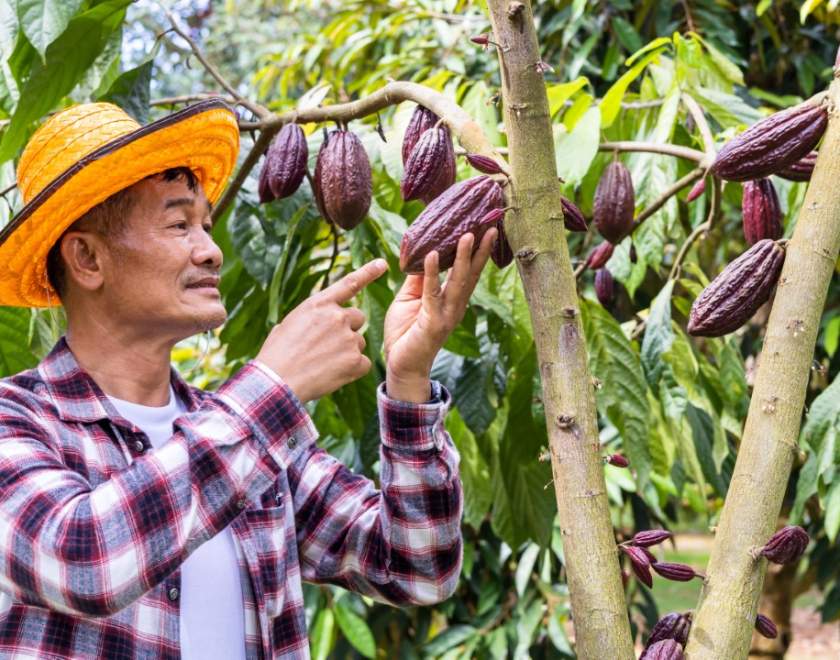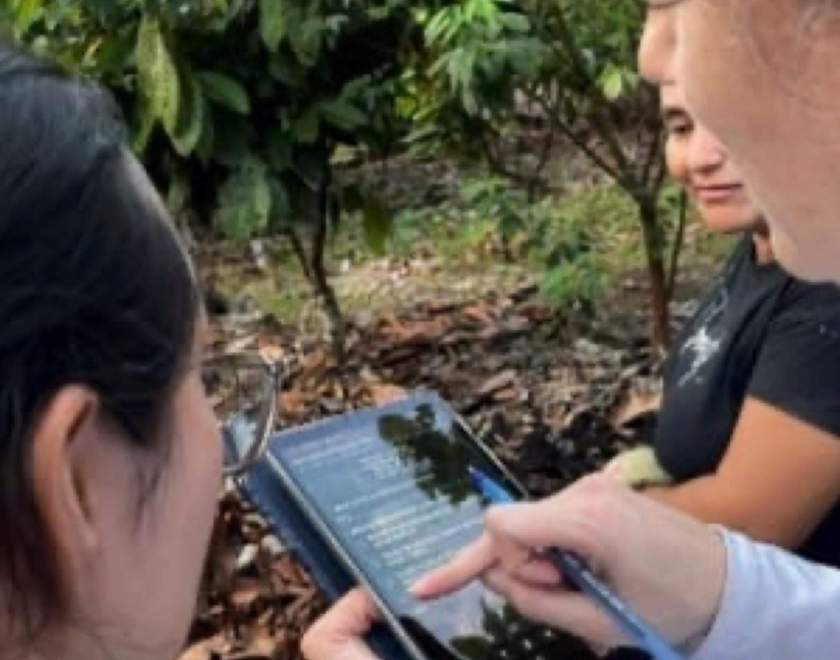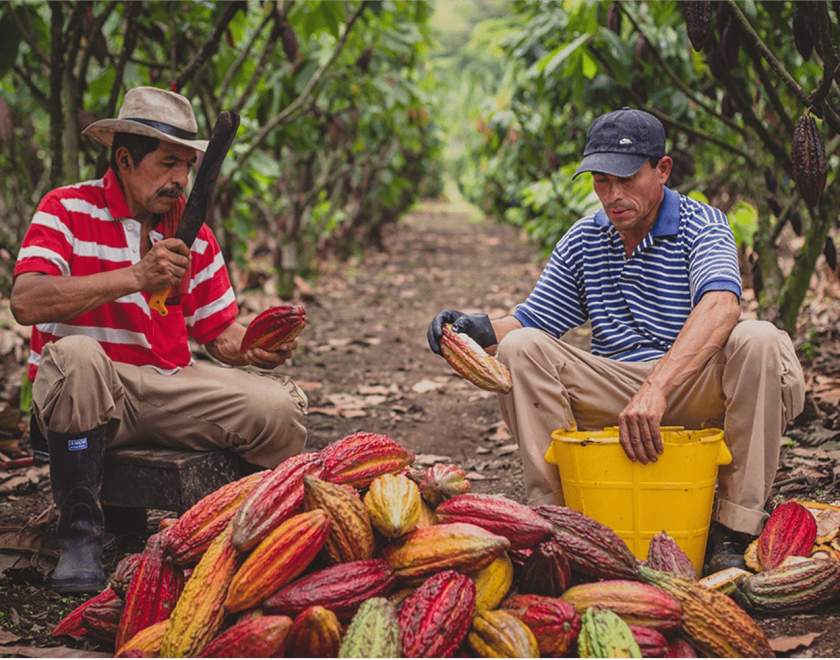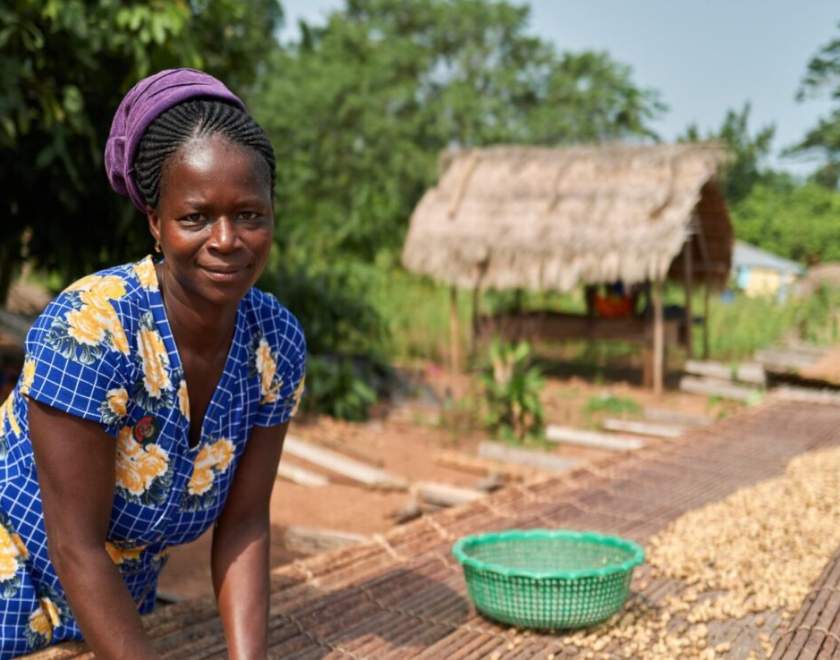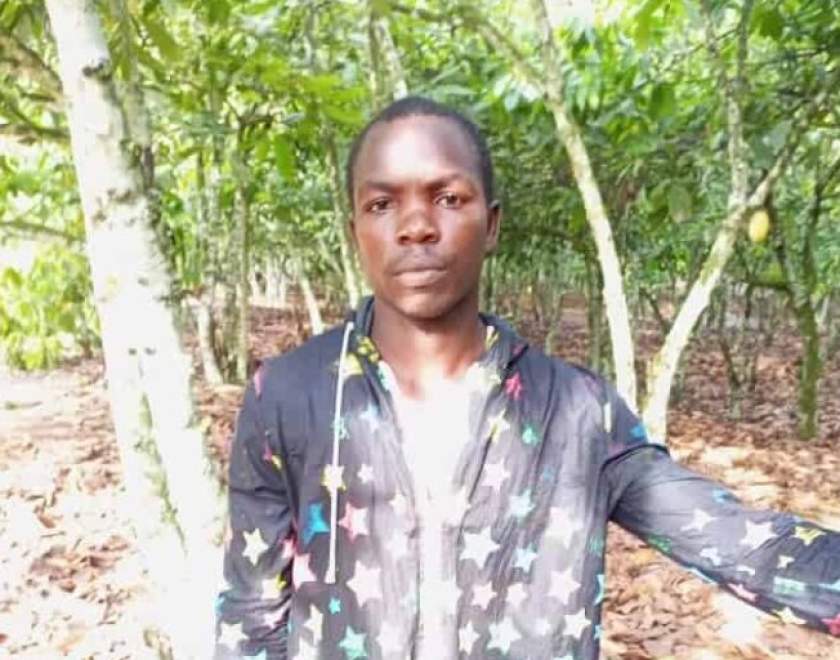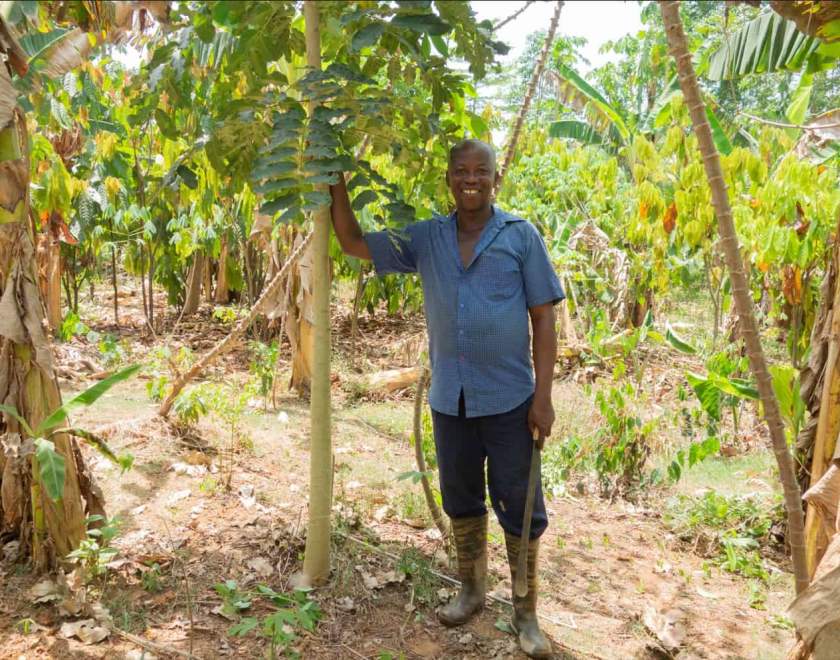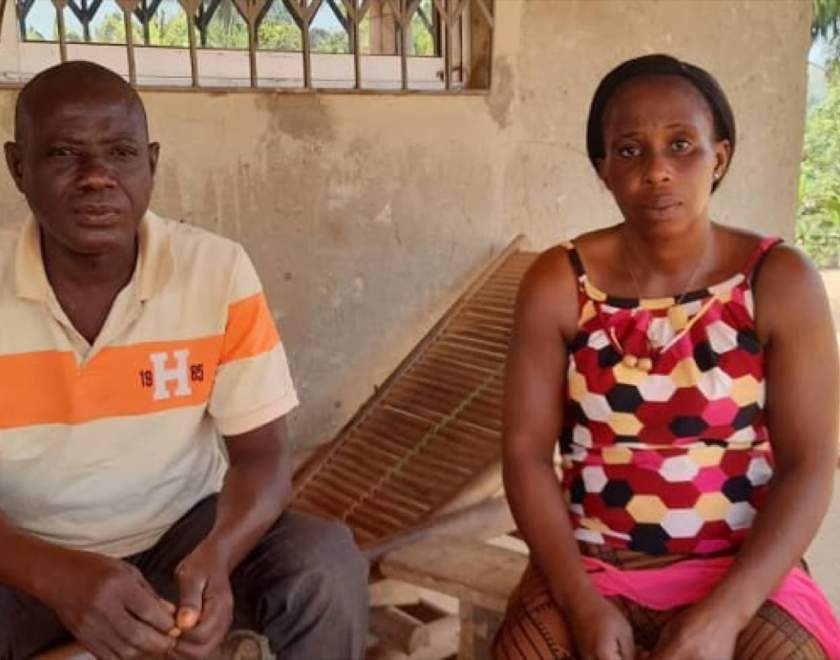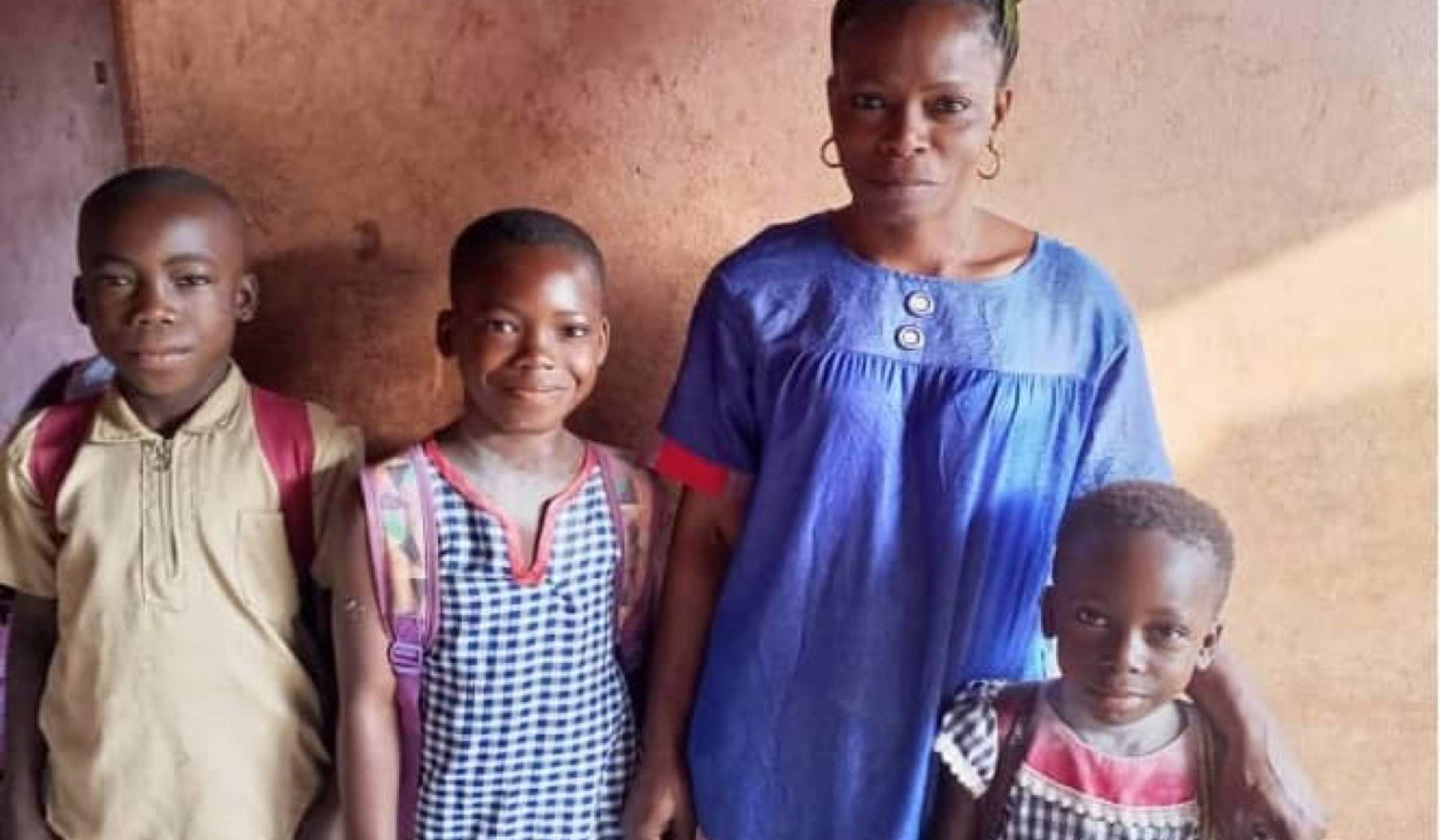
“This project is important because it supports abundant rain and the trees will allow us to have money in the future, ...”
...says Kacaou N’Guessan, a cocoa farmer from Léléblé, Côte d’Ivoire.
Kacaou is one of the farmers who participated in a high-density agroforestry project in her community. Agroforestry programs help support nature, farmers, their families, and communities in many ways, including supporting local biodiversity, improving farmer incomes, increasing climate resilience, and raising awareness of forest protection. To bridge the gap between best practices and implementation, these programs seek to teach farmers the many benefits of agroforestry. The cocoa farming community organization that Kacaou is a member of, SCAPCCA, was selected for a CFI-aligned program. This program is committed to restoring the local ecosystem by supporting community agroforestry, with goals of sequestering carbon, protecting soil, and supporting high-density agroforestry models (a minimum of 100 trees per hectare for every participating cocoa farm). In total, over 60,000 multipurpose shade trees will be planted to help more than 600 farmers involved, including Kacaou. Kacaou states that she learned how to plant and maintain shade trees on her farm through the program. To effectively meet the needs of the community, this project involved many community members, such as hiring local people to establish and run local tree nurseries. These nurseries help decrease the cost of trees for farmers by shortening transportation distance and increasing seedling survival rates once the trees are planted. The program training was carried out by technicians who helped teach planting models, prepare the ground, distribute the seedlings, and provide tree maintenance. Kacaou says this training will help her prepare for the future: “we have learned to be autonomous during staking [of seedlings], planting, and monitoring of trees. This will allow me to increase my yield and production.”
This project creates jobs, helps increase climate resilience, supports local biodiversity, and teaches farmers new skills all while working to reduce the impact of cocoa production on forest ecosystems in West Africa. Over 132 farmers, including 15 women, participated in this project, and have planted over 20,000 multipurpose trees so far. In addition, financial incentives based on tree survival are available for farmers in the program. 146 farmers from the project the year prior received these payments for making sure the trees they plant stay strong and healthy. Kacaou is one of the farmers receiving these payments, and she is glad to be a part of this project: “I am very happy because this project protects my plantation against strong winds and pests,” Kacaou says. She has not only increased her knowledge of agroforestry but also diversified her income and supported forest restoration.
